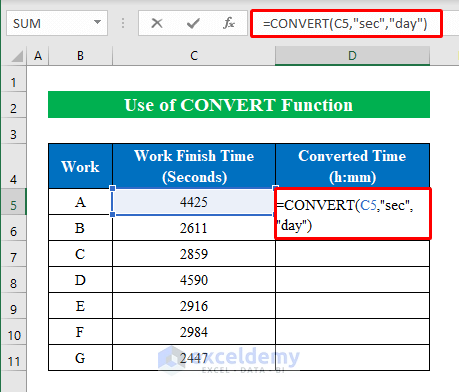5 Ways to Convert Negative to Positive in Excel

Excel is a powerful tool widely used in the business world and personal finance management for its robust calculation capabilities and data manipulation features. One of the most common operations users might need to perform is converting negative numbers into positive ones, which can be essential for various financial calculations, data analysis, and improving the clarity of datasets. Here, we will explore five different methods to achieve this transformation within Microsoft Excel.
Method 1: Using the ABS Function
The Absolute Value Function (ABS) is the most straightforward way to convert negative values to positive:
- Select the cell where you want the result to appear.
- Type =ABS(cell with negative number).
- Press Enter.
For example, if the negative number is in cell A2, you would input =ABS(A2) in the cell where you want the positive result.
📝 Note: The ABS function will not change positive numbers, it will keep them as is.
Method 2: Utilizing the IF Function
If you want to perform an operation only if the number is negative, you can use the IF function:
- Select your target cell.
- Type
=IF(A2<0,-A2,A2). - Press Enter.
This formula checks if the value in A2 is less than zero. If true, it multiplies the number by -1, effectively converting the negative to positive.
Method 3: Conditional Formatting for a Visual Conversion
While this method doesn’t alter the value, it visually converts negatives:
- Select the range of cells you want to format.
- Go to Home > Conditional Formatting > New Rule.
- Choose “Use a formula to determine which cells to format.”
- Enter
=A2<0in the formula box. - Set a number format for these cells that displays negative numbers as positive.

| Steps | Description |
|---|---|
| Step 1 | Select cells with negative numbers |
| Step 2 | Use Conditional Formatting to apply custom number format |
🔍 Note: This method does not change the actual data, it only changes how the data is displayed.
Method 4: Using the Paste Special Option
If you need to convert an entire column or range:
- Copy the negative values.
- Select where you want the positive numbers to appear.
- Choose Home > Paste > Paste Special.
- Select ‘Values’ and in ‘Operation’, choose ‘Multiply’.
- Input -1 in the next dialogue box, and hit OK.
This operation will multiply all selected values by -1, converting negatives to positives.
Method 5: Creating a Custom VBA Function
For those comfortable with VBA, you can create a function to convert negatives:
- Open the VBA editor by pressing
Alt + F11. - Insert a new module by selecting
Insert > Module. - Enter the following code:
Function MakePositive(ByVal num As Double) As Double
If num < 0 Then
MakePositive = -num
Else
MakePositive = num
End If
End Function
Now, you can use this function in Excel like any other function:
- Select your target cell and type
=MakePositive(cell with number). - Press Enter.
These methods provide various ways to convert negative to positive numbers in Excel, catering to different needs. Whether it's for analysis, clarity, or reporting, understanding these techniques allows you to manipulate your data effectively. Remember, the choice of method depends on your specific requirements, such as whether you want to change actual data or merely how it's presented.
Can I convert negative numbers to positive without changing the original values?
+Yes, you can use conditional formatting to visually convert the display of negative numbers to positive without altering the original data.
Is there a way to automate the conversion for large datasets?
+Yes, for large datasets, you can use the Paste Special method to multiply an entire column by -1 or create a VBA macro to automate the process.
What is the best method for data analysis?
+For data analysis, using formulas like ABS or IF functions is best since they allow you to work directly with the data without changing it, offering more flexibility.
How do I revert the changes if I’ve made a mistake with these conversions?
+To revert changes, you can undo the action immediately or use a backup of your original data. If you’ve used a function or VBA, simply remove the formula or code to return to the original values.



